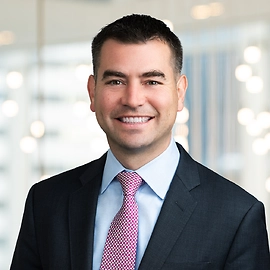As we have previously reported, there has been an uptick of new employment decisions finding in favor of registered medical marijuana users. In keeping with these decisions, an administrative law judge (“ALJ”) at New York City’s Office of Administrative Trials & Hearings (“OATH”) also issued a report and recommendation, subsequently adopted by the relevant City commissioner, to dismiss a petition against a taxi driver that would have stripped him of his driver license because of his lawful medical marijuana use.
In Taxi & Limousine Comm’n v. W.R., OATH Index. No. 2503/17 (July 14, 2017), adopted, Comm’r Dec. (July 25, 2017), the Taxi & Limousine Commission (“TLC”) filed a petition seeking the revocation of the respondent taxi driver’s TLC Driver License because the driver tested positive for marijuana. OATH disagreed and recommended that the petition be dismissed, finding that revocation solely because of the driver’s status as a certified medical marijuana patient would violate New York City and State laws. The TLC adopted the OATH decision.
The rationale was simply stated. Under the New York Compassionate Care Act, certified patients may not be subject to penalty or denied any right or privilege solely for the certified use of medical marijuana. Because the patient certification is analogous to a prescription, the certified use of marijuana could not constitute an illegal drug use that would serve as the basis to revoke a license. Further, certified patients are deemed to have a disability under the New York State Human Rights Law. Because the New York State Human Rights Law prohibits discrimination on the basis of disability, as does the New York City Human Rights Law, the driver had additional protections against revocation of his license.
Key Takeaways
This case serves as another illustration of the intersection of medical marijuana use and disability, and the potential pitfalls for those companies that maintain zero-tolerance drug policies.
New York City employers should be particularly cautious in the use of drug tests and the enforcement of their drug policies. While this decision involves a licensee rather than an employee, the reasoning employed by the ALJ could be equally applied to the employment context. Additionally, OATH—as an independent administrative tribunal within the City—hears cases brought by any City agency, board, or commission, including the New York City Commission on Human Rights (“CCHR”). In a case brought by the CCHR, OATH issues a report and recommendation to the City Human Rights Commissioner. While the Commissioner has discretion to adopt, modify, or reject the report and recommendation, if such rationale were applied in an employment case, there is little doubt that this rationale would be followed by the Commissioner in employment discrimination cases.
Blog Editors
Authors
- Member of the Firm
